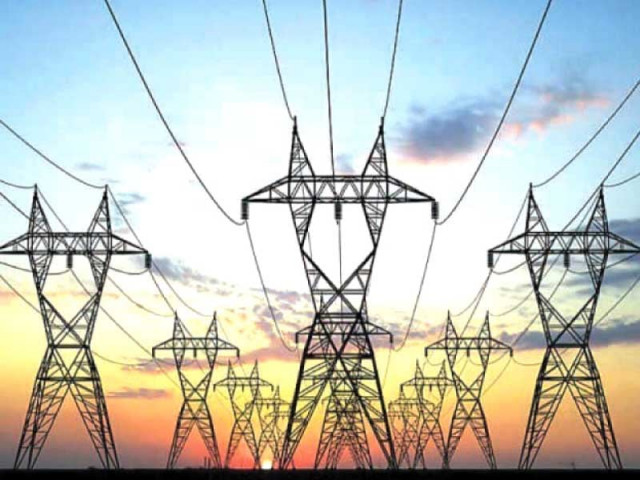Policy initiatives for loss-making PSEs
Govt works on plan to run these units in partnership with private sector

Frustrated with the public energy companies, the Pakistan Tehreek-e-Insaf (PTI) government had established Sarmaya-e-Pakistan Limited (SPL), with the task of overseeing the public sector enterprises (PSEs). However, so far the plan has not been made functional.
To make matters worse, the power sector’s circular debt has continued to soar and touched the Rs2.3-trillion mark. Now, the government is exploring a new model to operate PSEs in partnership with the private sector.
The private sector will not only operate these enterprises in an effective way but it will also attract investment.
In financial year 2017-18, cumulative losses of nearly 200 state-owned enterprises crossed Rs1 trillion. The government then planned to transfer its equity ownership in various PSEs to SPL, to be overseen and managed by a team of public and private-sector professionals.
The government also planned to give the SPL board of directors powers of appointing heads of state-owned energy firms. But now, it is studying a plan to focus on a targeted group of the energy sector that contributes the most to the aggregate economic loss.
Proposed arrangement
Adviser to Prime Minister on Power Tabish Gauhar has proposed several policy initiatives to Prime Minister Imran Khan.
He proposed the issuance of a competitive tender immediately for a five to seven-year management contract under the public-private partnership model for each loss-making PSE. But it would be with no upfront equity offering ie no outright privatisation, employee layoffs, etc.
The government is working on giving the mandate to the Privatisation Commission to lead this time-bound initiative, which will be open to the qualified domestic as well as foreign players. Under this model, the private sector will provide management and technical expertise and invest under a mutually agreed business/ capital expenditure plan for reducing losses and increasing revenues of a PSE.
Its return will be a defined percentage of agreed reduction in operational losses each year against a baseline number ie a non-guaranteed, non-rent seeking, incentive-based compensation structure with annual review of the agreed key performance indicators (KPIs) and early termination scenarios tailoured for each PSE.
By way of a simple illustrative example, if the PSE has an average loss of Rs100 per year, and the private sector management successfully brings it down to Rs90 at the end of first year, it can charge the government 20% (or Rs2) of the reduction as its fee for that year. At the same time, the government will save Rs8 (or 80%) in the loss that would otherwise have been funded by the public exchequer in the status quo scenario.
Under the model, there will be no forced employee dismissals other than a purely voluntary severance and golden handshake scheme, and no asset stripping. The model will also lead to domestic transfer of technology, management knowhow, etc.
The private sector will implement its pre-agreed business/ value creation plan without further government and ministry approvals. It will set up a truly independent board of directors for each PSE where non-executive and non-government members will have majority. It will also hire a senior management team (CEO, CFO, etc) under an optimised organisational chart including segregation between core and outsourced non-core functions, an internal reward and reprimand policy and a revised pay structure with incremental salary over the public sector benchmark to be paid out of the committed investment.
It has also been proposed during discussions that investors will require some indemnity. Track record of past governments is not good. Different cases had been probed by the National Accountability Bureau (NAB) and some landed in the international court of arbitration.
Owing to that, investors are wary of investing in Pakistan. They want some protection from the government while moving to Pakistan with their business plans. It is only China that has invested heavily in the China-Pakistan Economic Corridor (CPEC) projects. But an inquiry report on the power sector raised some questions over the return being offered on coal-based power plants to Chinese companies.
Minister for Communication Murad Saeed also raised some questions over road projects. However, the government of Pakistan later backed off on these issues, fearing a backlash from the friendly country.
Indemnity
Now, in such a scenario, investors want some protection from the government before injection money into the energy sector. The government is being asked to give legislative cover and indemnity from NAB inquiries to the investors if they become part of the proposed plan.
It has been suggested that both parliament and the Supreme Court should ratify any such arrangement prior to its rollout and it will be subject to the law. And the incoming private sector investors should be shielded from any retrospective inquiries, except for any unethical and illegal acts of omission and commission.
Under the proposed model, the Ministry of Finance will continue to provide sovereign guarantee for the outstanding third-party debt on the PSE’s books until privatisation. The government may consider privatising various PSEs to partially and fully monetise the value from time to time as part of the model.
The writer is a staff correspondent
Published in The Express Tribune, November 2nd, 2020.
Like Business on Facebook, follow @TribuneBiz on Twitter to stay informed and join in the conversation.



















COMMENTS
Comments are moderated and generally will be posted if they are on-topic and not abusive.
For more information, please see our Comments FAQ